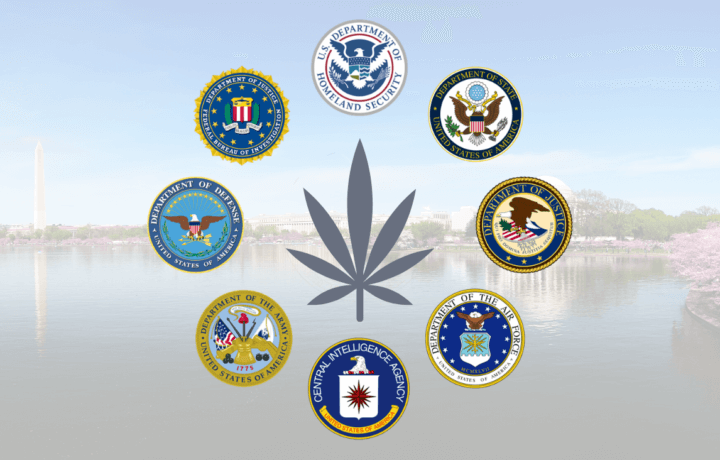Drugs. They’re not just for dead heads anymore. As marijuana has gone main stream and the number of states with some form of legalized marijuana hits 37, that also means a growing number of security clearance applicants are being tripped up for those college, spring break and happy hour trips.
Drug involvement as an adjudicative guideline includes not just illegal drug use, but being involved in illegal drug investments or activity.
Here are four ways drugs are tripping up an increasing number of clearance applicants.
Read about how to mitigate prior drug use in our new white paper Drug Use Considerations for Clearance Holders and Applicants.
1. Failure to just say no.
This is where the contradiction between state and federal law, or between recreational and medicinal use – or even between regular and occasional use can sometimes cause applicants to indicate they will continue to use marijuana. It seems like a no brainer that security clearance applicants would know that was an obvious no. But Defense Office of Hearings and Appeals (DOHA) cases highlight how changing public perceptions and state laws have made the question surprisingly confusing. Unfortunately, if you indicate your desire to continue to use illegal substances after submitting the SF-86, that will be a lofty hill to climb to obtaining a cleared career.
2. Making a Marijuana Investment.
State legalization has meant a few things – and one of those is booming revenue for revenue businesses. From simple questions about investing in marijuana stocks of having marijuana has a part of your mutual funds portfolio, to whether or not a CPA who has done taxes for marijuana businesses should list that on their SF-86, marijuana money matters are a hot topic. The simple rule is that direct investment is a clear issue – and would fall under the drug involvement adjudicative guideline. Indirect investment through something like a mutual fund, or even providing services to a drug business (in addition to a host of non-drug related businesses), probably isn’t an issue.
3. CBD Products.
The Office of the Director of National Intelligence (ODNI) clarifying guidance issued in December offered a hefty buyer-beware for those using CBD products while holding a security clearance. They’re already a policy no-go for active duty service members and DoD civilians, but ODNI’s policy emphasized that if you’re consuming a CBD product that allows you to test positive for THC in a drug test – you’re likely to find yourself in security clearance hot water.
4. Recent Drug Use.
ODNI’s clarifying guidance indicates past drug use alone should not cause an adverse security clearance decision. But clearance applicants are cautioned to not consider that a clearance green light if you have past drug use in your application. Because the Bond Amendment makes it unlawful to issue a clearance to a drug user, if you are a habitual drug user and apply for a security clearance, many agencies still see a clear path to denial – you simply haven’t put enough time between your drug use and clearance application to say you’re not a drug user as the Amendment defines it. The intelligence community is also still advising a 1-year period of abstinence for applicants. Our advice is always don’t weed yourself out of the process – especially if your use was occasional or college-related. But the more time you can pass between drug use and a clearance application the better.
Concerned your drug use could trip up your clearance chances? Read more on drug policies and how to mitigate marijuana use in our white paper Drug Use Considerations for Security Clearance Holders and Applicants.



